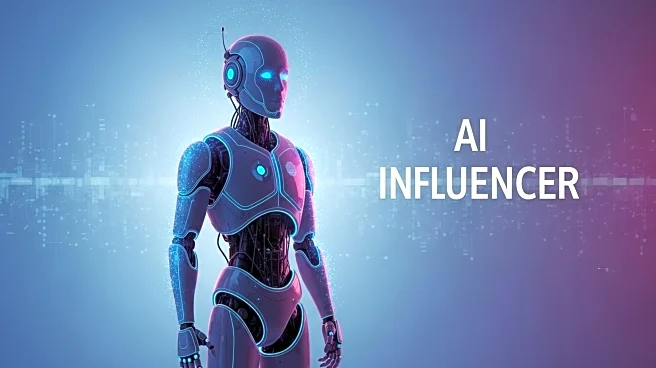What's Happening?
Vodafone has launched an advertising campaign featuring an AI-generated influencer, marking a significant step in the integration of artificial intelligence into marketing strategies. The ad, which appeared on TikTok in Germany, showcases a presenter who exhibits characteristics typical of AI generation, such as unnatural hair movement and disappearing facial features. Vodafone confirmed the use of AI in response to viewer inquiries, stating that the company is experimenting with different advertising styles to reflect the growing presence of AI in everyday life. This is not Vodafone's first foray into AI-generated content; the company previously released a commercial entirely created with AI technology.
Why It's Important?
The use of AI-generated influencers in advertising represents a broader trend of incorporating artificial intelligence into various sectors, including marketing. This development could significantly impact the advertising industry by reducing costs associated with hiring human talent and allowing for more creative flexibility. However, it also raises questions about authenticity and consumer trust, as audiences may react differently to content they perceive as artificial. The rise of AI influencers like Lil' Miquela, who have already been featured in major brand campaigns, suggests a shift in how brands engage with consumers, potentially altering traditional marketing dynamics.
What's Next?
As AI technology continues to advance, it is likely that more companies will explore its use in advertising and other creative fields. This could lead to increased competition among brands to produce innovative and engaging content. Additionally, regulatory bodies may need to consider guidelines for transparency in AI-generated content to ensure consumers are aware of what they are viewing. The advertising industry will need to balance the benefits of AI with the potential ethical implications of its use.
Beyond the Headlines
The integration of AI in advertising also touches on broader cultural and ethical issues, such as the impact on employment in creative industries and the potential for AI to perpetuate biases present in its training data. As AI becomes more prevalent, society will need to address these challenges to ensure technology is used responsibly and equitably.










